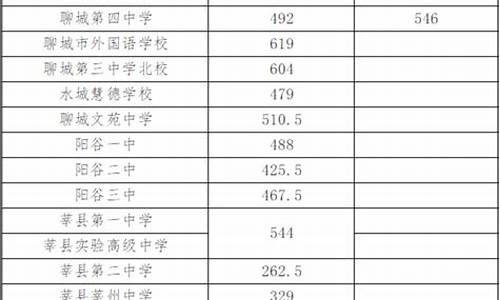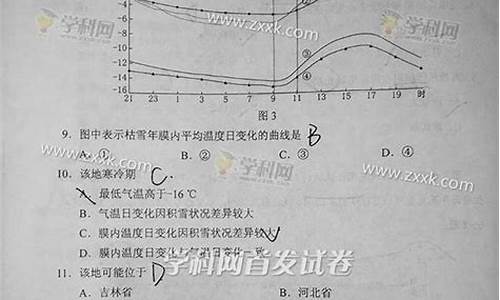高考英语常考考点-高考英语常考考点分析
1.高考英语知识要点总结
2.高考英语常用的固定短语,常用搭配还有重点句型考点有哪些?
3.高考英语必备的语法知识点
高考英语知识要点总结

英语高考本身就不仅仅是背背单词那么简单的,高考英语涉及到很多语法知识,是一次非常全面正式的考试。下面是我为大家整理的高考英语知识要点 总结 ,希望对大家有用!
目录
高考英语语法知识
高考英语知识重点
高考英语必备知识
高考英语语法知识
主语从句
主语从句是在复合句中充当主语的从句,通常放在主句谓语动词之前或由形式主语it代替,而本身放在 句子 末尾。
1. It 作形式主语和it引导强调句的比较。
It 作形式主语代替主语从句,主要是为了平衡句子结构,主语从句的连接词没有变化。而it引导的强调句则是对句子某一部分进行强调,无论强调的是什么成分,都可用连词that。被强调部分指人是也可用who/whom。
例如:
It is a pity that you didn’t go to see the film.
It doesn’t interest me whether you succeed or not.
It is in the morning that the murder took place.
It is John that broke the window.
2. 用it 作形式主语的结构。
(1) It is +名词+从句
It is a fact that … 事实是…
It is an honor that …非常荣幸
It is common knowledge that …是常识
(2) it is +形容词+从句
It is natural that… 很自然…
It is strange that… 奇怪的是…
(3) it is +不及物动词+从句
It seems that… 似乎…
It hened that… 碰巧…
(4) it +过去分词+从句
It is reported that… 据报道…
It has been proved that… 已证实…
3. 主语从句不可位于句首的五种情况。
(1) if 引导的主语从句不可居于复合句句首。
(2) It is said , (reported) …结构中的主语从句不可提前。
例如:
It is said that President Jingo will visit our school next week. (right)
That President Jiang will visit our school next week is said. (wrong)
(3) It hens…, It occurs… 结构中的主语从句不可提前。
例如:
It occurred to him that he failed in the examination. (right)
That he failed in the examination occurred to him. (wrong)
(4) It doesn’t matter how/whether …结构中的主语从句不可提前。
例如:
It doesn’t matter whether he is wrong or not. (right)
Whether he is wrong or not doesn’t matter. (wrong)
(5) 含主语从句的复合句是疑问句时,主语从句不可提前。
例如:
Is it likely that it will rain in the evening? (right)
Is that will rain in the evening likely? (wrong)
4. What 与that 在引导主语从句时的区别。
What 引导主语从句时在句时在从句中充当句子成分,如主语.宾语.表语,而that 则不然。
例如:
1) What you said yesterday is right.
2) That she is still alive is a consolation.
〈〈〈
高考英语知识重点
1.abandon v.放弃,抛
2.ability n. 能力;才能
3.abnormal adj. 不正常的
4.aboard prep. & adv.在(或上)船、飞机、火车等
5.abolish v. 废除
6.abortion n. 流产
7.abroad adv. 到(在)国外
8.abrupt adj. 突然的
9.absence n. 不在,缺席
10.absent adj. 缺席,不在
11.absolute adj. 绝对的
12.absorb v. 吸收
13.abstract adj. & n. 抽象(的)
14.absurd adj. 荒谬的
15.abundant adj. 丰富的
16.abuse v. 滥用,虐待
17.access n. & v. 接近,进入
18.accessible adj. 可接近的,可使用的
19.accident n.事故,意外的事
20.accommodation n. 住宿,调节
〈〈〈
高考英语必备知识
1. 元宵节 : Lantern Festival
2. 刺绣 :Embroidery
3. 重阳节 :Double-Ninth Festival
4. 清明 节:Tomb Sweeping Day
5.剪纸:Paper Cutting
6.书 法: Calligraphy
7. 对联 :(Spring Festival) Couplets
8.象形文字:Pictograms/Pictographic Characters
9.雄黄酒:Realgar Wine
10.四合院:Siheyuan/Quadrangle
11.战国:Warring States
12.风水 :Fengshui/Geomantic Omen
13.昆曲 :Kunqu Opera
14.长 城 :The Great Wall
15.集体舞 :Group Dance
16.黄土高原 :Loess Plateau
17.红臼喜事:Weddings and Funerals
18. 中秋节 :Mid-Autumn Day
19.花鼓戏:Flower Drum Song
20.儒家 文化 :Confucian Culture
21.中国结:Chinese knotting
22.古装片:Costume Drama
23.武打片:Chinese Swordplay Movie
24.元宵:Tangyuan/Sweet Rice Dumpling (Soup)
25.越剧:Yue Opera
〈〈〈
高考英语知识要点总结相关 文章 :
★ 高考英语必考知识点归纳
★ 高考英语知识要点总结
★ 高考英语知识要点总结
★ 高考英语知识点归纳整理
★ 英语高考知识点总结
★ 最新高考英语重点知识点归纳
★ 高考英语知识点考点总结归纳
★ 高考英语知识点总结
★ 高考英语知识点总结归纳
★ 高考英语知识点归纳
var _hmt = _hmt || []; (function() { var hm = document.createElement("script"); hm.src = "s://hm.baidu/hm.js?cb1587ad6f9e6358c6ab363586b8af79"; var s = document.getElementsByTagName("script")[0]; s.parentNode.insertBefore(hm, s); })();高考英语常用的固定短语,常用搭配还有重点句型考点有哪些?
高考常用固定搭配总结
一、接不定式(而不接动名词)作宾语的24个常用动词
afford to do sth. 负担得起做某事
agree to do sth. 同意做某事
arrange to do sth.安排做某事
ask to do sth. 要求做某事
beg to do sth. 请求做某事
care to do sth. 想要做某事
choose to do sth. 决定做某事
decide to do sth. 决定做某事
demand to do sth. 要求做某事
determine to do sth. 决心做某事
expect to do sth. 期待做某事
fear to do sth. 害怕做某事
help to do sth. 帮助做某事
hope to do sth. 希望做某事
learn to do sth. 学习做某事
manage to do sth. 设法做某事
offer to do sth. 主动提出做某事
plan to do sth. 做某事
prepare to do sth. 准备做某事
pretend to do sth. 装做某事
promise to do sth. 答应做某事
refuse to do sth. 拒绝做某事
want to do sth. 想要做某事
wish to do sth. 希望做某事
注:有些不及物动词后习惯上也接不定式,不接动名词:
aim to do sth. 打算做某事
fail to do sth. 未能做某事
long to do sth. 渴望做某事
hen to do sth. 碰巧做某事
hesitate to do sth. 犹豫做某事
struggle to do sth. 努力做某事
二、接不定式作宾补的36个常用动词
advise sb. to do sth. 建议某人做某事
allow sb. to do sth. 允许某人做某事
ask sb. to do sth.请(叫)某人做某事
bear sb. to do sth.忍受某人做某事
beg sb. to do sth. 请求某人做某事
cause sb. to do sth. 导致某人做某事
command sb. to do sth. 命令某人做某事
drive sb. to do sth .驱使某人做某事
elect sb. to do sth. 选举某人做某事
encourage sb. to do sth. 鼓励某人做某事
expect sb. to do sth. 期望某人做某事
forbid sb. to do sth. 禁止某人做某事
force sb. to do sth. 强迫某人做某事
get sb. to do sth. 使(要)某人做某事
hate sb. to do sth. 讨厌某人做某事
help sb. to do sth. 帮助某人做某事
intend sb. to do sth. 打算要某人做某事
invite sb. to do sth. 邀请某人做某事
lee sb. to do sth. 留下某人做某事
like sb. to do sth. 喜欢某人做某事
mean sb. to do sth. 打算要某人做某事
need sb. to do sth. 需要某人做某事
oblige sb. to do sth. 迫使某人做某事
order sb. to do sth. 命令某人做某事
permit sb. to do sth. 允许某人做某事
persuade sb. to do sth. 说服某人做某事
prefer sb. to do sth. 宁愿某人做某事
request sb. to do sth. 要求某人做某事
remind sb. to do sth. 提醒某人做某事
teach sb. to do sth .教某人做某事
tell sb. to do sth. 告诉某人做某事
train sb. to do sth. 训练某人做某事
trouble sb. to do sth. 麻烦某人做某事
want sb. to do sth. 想要某人做某事
warn sb. to do sth. 警告某人做某事
wish sb. to do sth. 希望某人做某事
注:不要受汉语意思的影响而误用以下动词句型:
汉语说:“害怕某人做某事”,但英语不说fear sb. to do sth.。
汉语说:“原谅某人做某事”,但英语不说excuse [forgive] sb. to do sth.。
汉语说:“拒绝某人做某事”,但英语不说refuse sb. to do sth.。
汉语说:“惩罚某人做某事”,但英语不说punish sb. to do sth.。
汉语说:“建议某人做某事”,但英语不说suggest [propose] sb. to do sth.。
汉语说:“赞成某人做某事”,但英语不说rove sb. to do sth.。
汉语说:“通知某人做某事”,但英语不说inform sb. to do sth.。
汉语说:“欢迎某人做某事”,但英语不说welcome sb. to do sth.。
汉语说:“坚持某人做某事”,但英语不说insist [persist] sb. to do sth.。
汉语说:“希望某人做某事”,但英语不说hope sb. to do sth.。
汉语说:“安排某人做某事”,但英语不说arrange sb. to do sth.。
汉语说:“要求某人做某事”,但英语不说demand sb. to do sth.。
汉语说:“感谢某人做某事”,但英语不说thank sb. to do sth.。
汉语说:“祝贺某人做某事”,但英语不说congratulate sb. to do sth.。
汉语说:“阻止某人做某事”,但英语不说prevent sb. to do sth.。
要表示以上意思,可换用其他表达:
汉语的“原谅某人做某事”,英语可说成excuse [forgive] sb. for doing sth.。
汉语的“希望某人做某事”,英语可说成wish sb. to do sth.。
汉语的“建议某人做某事”,英语可说成advise sb. to do sth.。
汉语的“安排某人做某事”,英语可说成arrange for sb. to do sth.。
汉语的“要求某人做某事”,英语可说成demand of sb. to do sth.。
汉语的“感谢某人做某事”,英语可说成thank sb. for doing sth.。
汉语的“祝贺某人做某事”,英语可说成congratulate sb. on doing sth.。
汉语的“阻止某人做某事”,英语可说成prevent sb. from doing sth.。
三、接动名词(不接不定式)作宾语的34个常用动词
admit doing sth. 承认做某事 advise doing sth. 建议做某事
allow doing sth. 允许做某事 reciate doing sth. 感激做某事
oid doing sth. 避免做某事 consider doing sth. 考虑做某事
delay doing sth. 推迟做某事 deny doing sth. 否认做某事
discuss doing sth. 讨论做某事 dislike doing sth. 不喜欢做某事
enjoy doing sth. 喜爱做某事 escape doing sth. 逃脱做某事
excuse doing sth. 原谅做某事 fancy doing sth. 设想做某事
finish doing sth. 完成做某事 forbid doing sth. 禁止做某事
forgive doing sth. 原谅做某事 give up doing sth. 放弃做某事
imagine doing sth. 想象做某事 keep doing sth. 保持做某事
mention doing sth. 提及做某事 mind doing sth. 介意做某事
miss doing sth. 错过做某事 pardon doing sth. 原谅做某事
permit doing sth. 允许做某事 practice doing sth. 练习做某事
prevent doing sth. 阻止做某事 prohibit doing sth. 禁止做某事
put off doing sth. 推迟做某事 report doing sth. 报告做某事
risk doing sth. 冒险做某事 stop doing sth. 停止做某事
suggest doing sth. 建议做某事 understand doing sth. 理解做某事
四、接现在分词作宾补的20个常用动词
bring sb. doing sth.引起某人做某事 catch sb. doing sth. 碰上(撞上)某人做某事
discover sb. doing sth. 发现某人做某事 feel sb. doing sth. 感觉某人做某事
find sb. doing sth. 碰上(撞上)某人做某事 get sb. doing sth. 使某人做某事
he sb. doing sth. 使某人做某事 hear sb. doing sth. 听见某人做某事
keep sb. doing sth. 使某人不停地做某事 listen to sb. doing sth. 听某人做某事
look at sb. doing sth. 看着某人做某事 notice sb. doing sth. 注意到某人做某事
observe sb. doing sth. 观察某人做某事 prevent sb. doing sth. 阻止某人做某事
see sb. doing sth. 看见某人做某事 send sb. doing sth.使某人(突然)做某事
set sb. doing sth. 使(引起)某人做某事 start sb. doing sth. 使某人开始做某事
stop sb. doing sth. 阻止某人做某事 watch sb. doing sth. 观五、接动词原形作宾补的11个常用动词
feel sb. do sth. 感觉某人做某事 he sb. do sth. 使某人做某事
hear sb. do sth. 听见某人做某事 let sb. do sth.让某人做某事
listen to sb. do sth. 听着某人做某事 look at sb. do sth. 看着某人做某事
make sb. do sth. 使某人做某事 notice sb. do sth. 注意某人做某事
observe sb. do sth. 观察某人做某事 see sb. do sth. 看见某人做某事
watch sb. do sth. 观察某人做某事
察某人做某事
六、接不定式或动名词作宾语意思相同的12个动词
like to do sth / like doing sth. 喜欢做某事
love to do sth / love doing sth. 喜欢做某事
hate to do sth / hate doing sth. 憎恨做某事
prefer to do sth / prefer doing sth. 宁可做某事
begin to do sth / begin doing sth. 开始做某事
start to do sth / start doing sth. 开始做某事
continue to do sth / continue doing sth. 继续做某事
can’t bear to do sth / can’t bear doing sth. 不能忍受做某事
bother to do sth / bother doing sth. 麻烦做某事
intend to do sth / intend doing sth.想要做某事
attempt to do sth / attempt doing sth. 试图做某事
高考英语必备的语法知识点
高考是最全面系统的一次考试,英语科目的高考考察就是我们学生平时学过的知识和掌握的语法知识。下面是我为大家整理的高考英语必备的语法与知识点,希望对大家有用!
高考英语语法知识点
一般过去时
①一般过去时的基本用法:表示过去的事情、动作或状态常与表示过去具体的时间状语连用(或有上下文语境暗示);用于表达过去的习惯;表示说话人原来没有料到、想到或希望的事通常用过去式。如:
I met her in the street yesterday.
I once saw the famous star here.
They never drank wine.
I thought the film would be interesting,but it isn’t.
②如果从句中有一个过去的时间状语,尽管从句中的动作先于主句发生,但从句中的谓语动词连用过去式。如:
③表示两个紧接着发生的动作,常由以下词语连接,用一般过去时。如:but, and, when, as soon as, immediately, the moment, the minute。
The moment she came in, she told me what had hened to her.
He bought a watch but lost it.
④常用一般过去时的句型:
Why didn’t you / I think of that?
I didn’t notice it.
I forgot to tell you I had been there with my brother before.
I didn’t recognize him.
高考英语知识要点
1.表示“大量、许多”
可数:number/many/dozen/a great number 不可数:a great deal/amount/much 都可以:plenty of/lot/quantity/mass
2.可以修饰形容词比较级:far/even/any/much/rather/a bit/a lot
3.lie躺-lay-lain-lying 撒谎-lied-lied-lying
Lay下蛋-laid-laid-laying
4.can表示能力,be able to表示经过努力,有时态变化
5.receive强调客观接收,accept强调主观接受
6.on account of因为,由于;account for说明原因解释
7.accuse sb of指控某人,sue指控
8.add to增加扩大,add up加起来,add up to总共总计
9.afford负担得起,抽得出时间
10.after以过去为起点,用于过去时态,in以将来为起点,用于将来时态
11.ago与过去时连用,before与过去完成时连用
12.in all总计全部,all in all总的说来,at all一点,not at all一点也不
13.almost后接no,none,nothing,never,但不能用not修饰,nearly可以用not修饰 more than和too等词前面用almost,不用nearly
14.always与not连用表示未必、有时,例如Crows are not always black.乌鸦未必是黑 色的。
15.be amused at/by/with以?为乐
16.announce指个人郑重其事的宣布,declare指宣布战争、和平、意见、中立等 Declare后不加不定式
17.表示渴望:long for/be anxious for/in anxiety of/he an etite for/be eager to do/hunger for/sick for;为某事担忧be anxious about
高考英语知识点
(一)段首句
1. 关于?人们有不同的观点。一些人认为?
There are different opinions among people as to ____ .Some people suggest that ____.
2. 俗话说(常言道)?,它是我们前辈的经历,但是,即使在今天,它在许多场合仍然适用。
There is an old saying______. It"s the experience of our forefathers,however,it is correct in many cases even today.
3. 现在,?,它们给我们的日常生活带来了许多危害。首先,?;其次,?。更为糟糕的是?。
Today, ____, which he brought a lot of harms in our daily life. First, ____ Second,____. What makes things worse is that______.
4. 现在,?很普遍,许多人喜欢?,因为?,另外(而且)?。
Nowadays,it is common to ______. Many people like ______ because ______. Besides,______.
5. 任何事物都是有两面性,?也不例外。它既有有利的一面,也有不利的一面。
Everything has two sides and ______ is not an exception,it has both advantages and disadvantages.
6. 关于?人们的观点各不相同,一些人认为(说)?,在他们看来,?
People’s opinions about ______ vary from person to person. Some people say that ______.To them,_____.
7. 人类正面临着一个严重的问题?,这个问题变得越来越严重。
Man is now facing a big problem ______ which is becoming more and more serious.
高考英语必备的语法与知识点相关 文章 :
1. 高考英语语法与知识点
2. 高考英语语法与知识点总结
3. 高考英语语法知识点总结
4. 高考英语定语从句语法知识点与学习方法
5. 高中必备英语知识点归纳
6. 高考英语必备的知识
7. 高中英语语法知识点整理总结
8. 2020高考英语语法知识点
9. 高考英语知识点考点归纳
10. 高三英语语法知识点总结
声明:本站所有文章资源内容,如无特殊说明或标注,均为采集网络资源。如若本站内容侵犯了原著者的合法权益,可联系本站删除。












